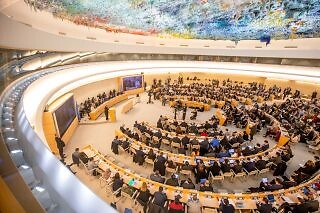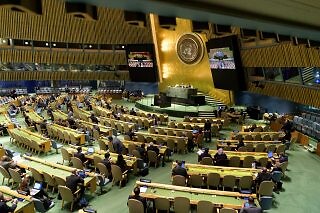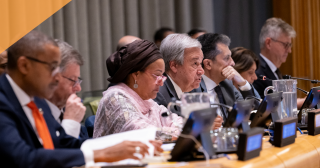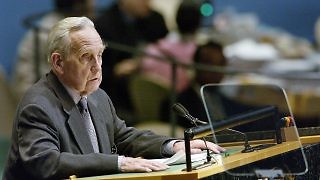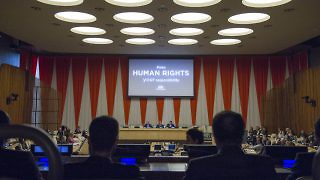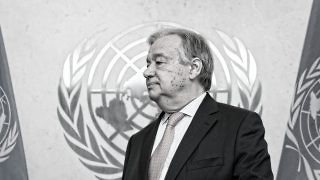The upcoming UN Peacebuilding Architecture Review provides a unique opportunity for the UN to shape the future of peacebuilding at a moment when sentiment toward multilateral institutions and the liberal framework guiding peacebuilding as a whole is changing. The way in which the review is developed and implemented, as well as the outcomes, offers a platform to tackle these contemporary challenges and guide the field of peacebuilding into the future. Central to this is the meaningful inclusion of diverse voices through innovative processes. Toward this end, the UN can work in partnership with intermediaries with a track record of organizing such inclusive and participatory processes.
Tag: UN reform
-
-
Whether through its investigative capabilities, its special rapporteur system, or the forum itself, the Human Rights Council could evolve to become a more central and effective actor in addressing peace and security risks.
-
The 78th United Nations (UN) General Assembly is convening at a time when humanity seems to be at war with itself and the environment. It has been charged with rebuilding trust in the multilateral system and reigniting global solidarity, which is approaching a danger zone. The culminating event of this process, the September 2024 Summit […]
-
The New Agenda for Peace sets a clear vision for reforms, but does not go into the details on how to achieve them. This cautious approach is a reflection of the secretary-general’s belief that it is the role of the UN to support—not make—the decisions of member states.
-
The UN has always faced a gap between its aspiration and performance. Yet, as Sir Brian observed, the UN is the only global design for the daunting task of managing both conflict and progress.
-
If UN reform is about making the UN fit for purpose, then it only makes sense that reforms be made to strengthen the human rights pillar.
-
From Rwanda during the 1990s to Syria today, the mass killing of civilians strikes at the very idea of an international community and undermines the UN’s founding principles.

